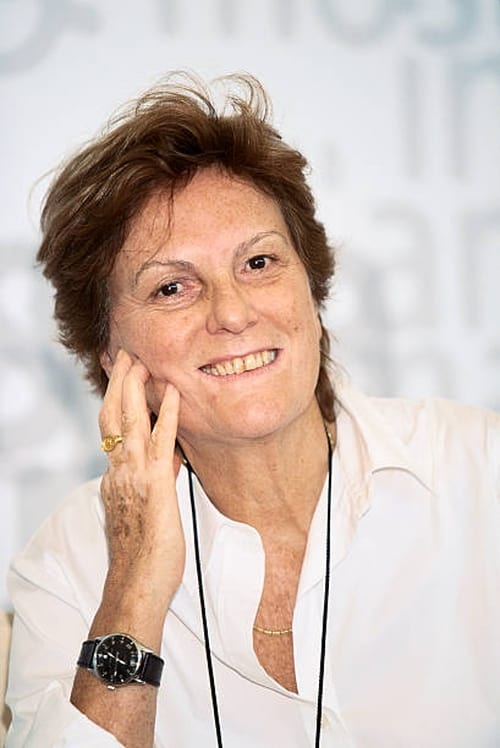
Liliana Cavani
出生 : 1933-01-12, Carpi, Modena, Emilia-Romagna, Italy
略歴
Liliana Cavani (born 12 January 1933, Carpi, Italy) is an Italian film director and screenwriter. She belongs to a generation of Italian filmmakers from Emilia-Romagna that came into prominence in the 1970s, including Bernardo Bertolucci, Pier Paolo Pasolini and Marco Bellocchio. Cavani became internationally known after the success of her 1974 feature film Il portiere di notte (The Night Porter). Her films have historical concerns. In addition to feature films and documentaries, she has also directed opera.
While attending film school, Cavani won a competition at RAI, Italy's national television network, and took a job there as a director of historical documentaries in 1961. Her professional career thus began making documentaries for RAI between 1961 and 1965, which included Storia del III Reich, (History of the Third Reich) (1962–1963), which chronicles the rise of the Nazi regime. It was the first historical investigation of German totalitarianism to appear on television. Other documentaries are: L'età di Stalin ("The Stalin Years"), an investigation into the Soviet leader's years; La donna nella Resistenza (1965); Philippe Pétain, processo a Vichy, winner of the Golden Lion at Venice film festival in 1965 in the documentary section. In this period she also made Il giorno della pace, a four-hour documentary on immigration south-to-north within Italy.
Cavani made her first full-length feature film in 1966 with Francis of Assisi (Francesco d'Assisi). Made for television and aired in two parts, it was deeply influenced by the style of Rossellini and the atmosphere typical of the films of Pasolini. Made in a period of political unrest, it was to become a kind of manifesto of dissenting Catholicism. The film was a great success, but also triggered many negative reactions. It was called " heretical, blasphemous and offensive for the faith of the Italian people". It was the first of many polemical reaction to Cavani's work.
Cavani was not well known beyond Italy until she made the 1974 film The Night Porter (Il portiere di notte), which remains the film for which she is best remembered. The plot, set in Vienna in 1957, follows an SS camp guard and a former concentration camp survivor engaging in a sadomasochistic relationship after meeting again by a chance encounter. A deeply controversial film, it starred Dirk Bogarde and Charlotte Rampling.
Cavani currently lives in Rome. Carpi, her hometown, has established the Associazione Fondo Liliana Cavani, where her films are preserved and made available for consultation.
Description above from the Wikipedia article Liliana Cavani, licensed under CC-BY-SA, full list of contributors on Wikipedia.
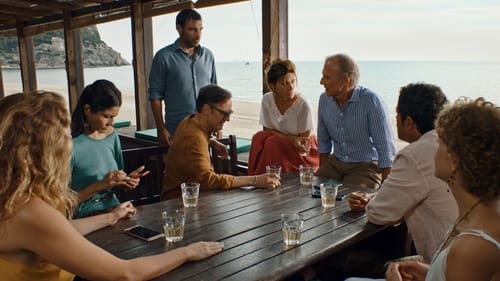
Writer
It explores what happens to a group of long-term friends one night when, during their annual get-together to celebrate a birthday in a villa by the sea, they discover that the world might be ending within the space of a few hours. From that moment on, the time separating them from the possible end of their lives seems to flow differently, both speedily and never-endingly, over a summer’s night which will change their lives forever.

Director
It explores what happens to a group of long-term friends one night when, during their annual get-together to celebrate a birthday in a villa by the sea, they discover that the world might be ending within the space of a few hours. From that moment on, the time separating them from the possible end of their lives seems to flow differently, both speedily and never-endingly, over a summer’s night which will change their lives forever.
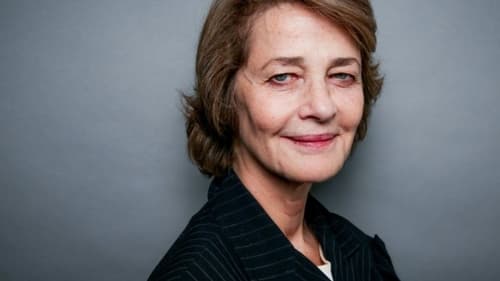
Self (archive footage)
Screen icon Charlotte Rampling has fascinated the world of cinema, fashion and photography with her mysterious and almost inaccessible beauty. A major figure in genre and auteur films, she is unclassifiable: between presence and absence, shyness and audacity, she's always hypnotic, magnetic and fascinating. From her film debut in the mid-1960s in England, to her unconventional career path, through the tragic loss suicide of her older sister that will irremediably mark her acting, this film is a dive into the existential quest of a complex actress, whose every facet is discovered through her roles. Through a conversation with the actress herself, along with personal archives and extracts from her films, this documentary raws a dazzling portrait of her life and career.
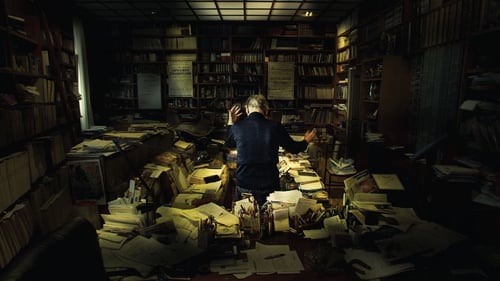
Self
多くの映画やテレビ作品で音楽を手掛け、2020年に逝去したエンニオ・モリコーネ氏。クエンティン・タランティーノ監督やクリント・イーストウッドらが彼に賛辞を贈る一方、自身は映画音楽の芸術的価値が低かった当時の苦しい胸のうちを明かす。『荒野の用心棒』での成功、『アンタッチャブル』で3度目のアカデミー賞ノミネートとなるも受賞を逃し、落ち込む様子なども描かれる。

Foreclosed to the future, hope is in the past. Foreclosed the space, hope is inside time. We haven't seen each other again. It was not our mouth and nose that were covered with a mask, but our eyes. We couldn't see each other during the pandemic. The mask was on the eyes like that of the protagonist of Chris Marker's film, La Jetée. Perhaps it is from this film that is so important that one could start looking at the world again,try to figure out how much of what we were has been deposited in the filters of memorial.

Self
Opera Prima is a tribute and a journey through the evolution that cinema has had in Italy. Tayu Vlietstra, a pupil of Bertolucci, carries out an investigation on the first work of six of the most authoritative and beloved Italian directors. The result is an unpublished and precious document that reveals the emotions and expectations of directors grappling with their cinematic debut. Mario Monicelli, Bernardo Bertolucci, Lina Wertmüller, Marco Bellocchio, Liliana Cavani and Francesca Archibugi offer a still current evolution on the needs and difficulties of making cinema in our country.

Liliana Cavani, before becoming an established filmmaker in Italy and in the world, was a young and brilliant documentary filmmaker in Ettore Bernabei's Rai. Just graduated from the Centro sperimentale di cinematografia, in just five years, from 1961 to 1966, Cavani produced over ten memorable programs, ranging from the editing documentary on the great history of the twentieth century to the investigation into the social, economic and cultural transformations of our country. A little-known image journey with a very high documentary and artistic value that reaches up to the TV film on Francesco d'Assisi, the first of his trilogy on the saint is the trait d'union between her documentary career and the debut of her cinematographic career.
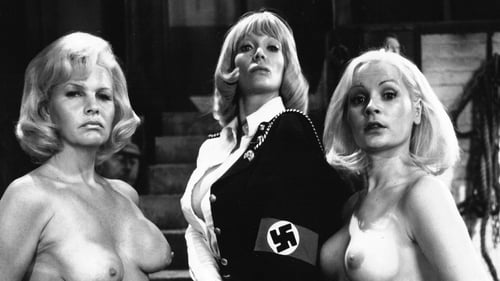
Self -Director
Feature length documentary on the cult sub-genre featuring interviews with Dyanne ‘Ilsa’ Thorne, Malissa ‘Elsa’ Longo, filmmakers Sergio Garrone, Mariano Caiano, Rino Di Silvestro, Liliana Cavani, Bruno Mattei, and many more.

Director
Based on the memoirs of author Curzio Malaparte, diplomatic liaison between the Allied and Italian forces after the defeat of the Nazi's in Italy, director Liliana Cavani's (The Night Porter) film is an unflinching look the collapse of Italian society under the US occupation and the desperate measures required for survival. An unforgettable and controversial film.

Screenplay
Depicts various periods in the life of Saint Francesco: Youth and the first conversion in 1206, the process that inflicts his father, the birth of the historical nucleus of Fraternitas and the departure for the Holy Land up to the writing of rules and death, addressing the problem of the legacy of his message in the different interpretation that Chiara and Elia will give it.

Story
Depicts various periods in the life of Saint Francesco: Youth and the first conversion in 1206, the process that inflicts his father, the birth of the historical nucleus of Fraternitas and the departure for the Holy Land up to the writing of rules and death, addressing the problem of the legacy of his message in the different interpretation that Chiara and Elia will give it.

Director
Depicts various periods in the life of Saint Francesco: Youth and the first conversion in 1206, the process that inflicts his father, the birth of the historical nucleus of Fraternitas and the departure for the Holy Land up to the writing of rules and death, addressing the problem of the legacy of his message in the different interpretation that Chiara and Elia will give it.

Producer
The story of a small community of cloistered nuns, devoted to Santa Chiara, in Urbino.

Director
The story of a small community of cloistered nuns, devoted to Santa Chiara, in Urbino.
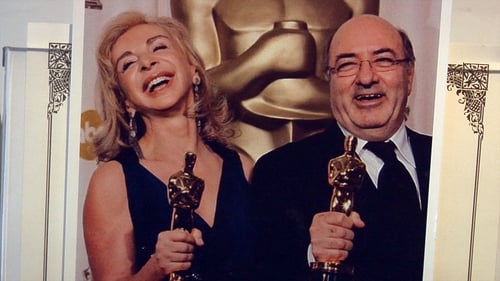
Self
The Documentary Dante Ferretti – Production Designer retraces the life and the career of Dante Ferretti, the famous Italian Artist and Production Designer.

Self
Until the 1970s, Italian cinema dominated the international scene, even competing with Hollywood. Then, in just a few years, came its rapid decline, the flight of our greatest producers, a crisis among the best writer-directors, the collapse of production. But what are the true causes and circumstances of this decline? In an attempt to provide an answer to this question, Di Me Cosa Ne Sai strives to depict this great cultural change. Begun as a loving examination of Italian cinema, the film transformed into a docu-drama that alternates between interviews with the great names of the past and fragments of cultural and political life of the last 30 years. It is a travel diary that shows Italy from north to south, through movie theatres; television-addicted kids; Berlusconi and Fellini; shopping centers; TV news editors; stories of impassioned film exhibitors and directors who fight for their films; and interviews with itinerant projectionists and great European directors.

Self
Features conversations with ten of the world's greatest living directors: Bernardo Bertolucci, David Lynch, Liliana Cavani, Stephen Frears, Agnes Varda, Ken Loach, Todd Haynes, Catherine Breillat, Richard Linklater and John Sayles. The film documents Ismailos' voyage of discovering the creative personalities behind the camera.

Director
The relationship between renowned scientist Albert Einstein and his first wife, Mileva Marić.

Director
Live from La Scala Saturday 07 July 2007. In this live performance of Giuseppe Verdi's opera, Violetta, a courtesan much wooed by Parisian society, organises a grand party that is attended, amongst others, by the young Alfredo Germont. He confesses his feelings to Violetta, who is already suffering from consumption. She vacillates between genuine affection and a realistic assessment of her situation as a "fallen woman", which precludes any lasting relationship with a man.

Director
このヴェルディ・フェスティヴァルでの上演では、マクベスに大ベテランのヌッチを起用。当時64歳のヌッチの声は相変わらず輝かしく力強くそして美しいもの。長年マクベスを得意としてきたヌッチの集大成といえる歌を楽しめます。マクベス夫人は、フランスのドラマティック・ソプラノ、シルヴィー・ヴァレル。度々の来日で日本でもおなじみのソプラノです。レパートリーがかなり広い人なのでヴェルディ・ソプラノの印象があまりありませんが、実はヴェルディのオペラの役を12も持ち役にしているほど得意にしています。中でもマクベス夫人は当たり役で、美しい容姿もあって、魔性の女の雰囲気が色濃い魅力的なものです。バンコのエンリーコ・イオーリは、地元パルマのバス。イタリア人バスの逸材として2000年頃から幅広く活躍しています。マクドゥフのロベルト・イウリアーノは、ミラノ出身のテノール。美声の軽めのテノールでしたが、近年は貫禄を増し、このマクドゥフは大いに称賛されました。指揮は当時80歳の大ベテラン、ブルーノ・バルトレッティ。筋金入りのヴェルディを聴かせてくれます。

Self
After shooting to fame with Federico Fellini’s “La Dolce Vita” (1960), actor Marcello Mastroianni (1924-1996) starred in more than 160 films in his nearly half-a-century career. Directors Mario Canale and Annarosa Morri look into the melancholic charm of one of the most famous Italian actors through interviews with his two daughters, Barbara and Chiara; directors Fellini and Luchino Visconti; actresses Claudia Cardinale and Anouk Aimee; and in archival footage of Mastroianni himself. The subject matter ranges from Mastroianni’s passion for kidney-bean pasta and his addiction to the telephone to his famous laziness, humility and talent. Shown in black-and-white, Mastroianni — elegantly holding a cigarette in between his fingers — is undeniably the dandy.

Co-Writer

Director
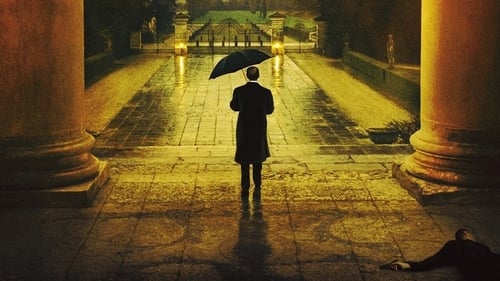
Screenplay
Tom Ripley - cool, urbane, wealthy, and murderous - lives in a villa in the Veneto with Luisa, his harpsichord-playing girlfriend. A former business associate from Berlin's underworld pays a call asking Ripley's help in killing a rival. Ripley - ever a student of human nature - initiates a game to turn a mild and innocent local picture framer into a hit man. The artisan, Jonathan Trevanny, who's dying of cancer, has a wife, young son, and little to leave them. If Ripley draws Jonathan into the game, can Ripley maintain control? Does it stop at one killing? What if Ripley develops a conscience?

Director
Tom Ripley - cool, urbane, wealthy, and murderous - lives in a villa in the Veneto with Luisa, his harpsichord-playing girlfriend. A former business associate from Berlin's underworld pays a call asking Ripley's help in killing a rival. Ripley - ever a student of human nature - initiates a game to turn a mild and innocent local picture framer into a hit man. The artisan, Jonathan Trevanny, who's dying of cancer, has a wife, young son, and little to leave them. If Ripley draws Jonathan into the game, can Ripley maintain control? Does it stop at one killing? What if Ripley develops a conscience?

Director
Conducted by Riccardo Muti, the master of the Scala in Milan for twenty years, the Verdian melodrama unfolds before our eyes. This Cavani's approach is ageless and excellence is pre-eminent: to start with, the role of Riccardo is played by the wonderful Salvatore Licitra. As for Maria Guleghina, she plays an exceptionally good Amelia. Riccardo Muti proves once again what a wonderful Verdian he is.

Self
The film consists largely of a series of interviews with female filmmakers from several different countries and filmmaking eras. Some, such as Agnès Varda and Catherine Breillat (both from France), have been making films for decades in a conscious effort to provide an alternative to the male filmmaking model; others, such as Moufida Tlatli (Tunisia) and Carine Adler (England), are relative newcomers to directing, and their approaches seem more personal and less political. The film as a whole manages to cover some important topics in the feminist debate about film -- how does one construct a female gaze, how can one film nude bodies without objectifying the actors (of either sex), what constitutes a strong female role -- while also making it clear that “women’s film” comprises as many different approaches to filmmaking as there are female filmmakers.

Director
TDK presents a recording of Puccini’s heart-breaking opera from one of the best opera houses of the world featuring star tenor José Cura and remarkable soprano Maria Guleghina as the two inseparable lovers. Riccardo Muti, music director of La Scala at the time of this performance, gives full weight to the alternation of social realism and private amatory psychology, of crowds and intimacy, body and spirit. And the director of this Milan production, the famous Italian film director Liliana Cavani, provides it with a realistic setting. Every scene looks like a genre painting, from which Puccini’s psychograms emerge musically. This forms the background for the two outstanding singer actors, who take the lead roles.

Director
A staging of the opera by Mascagni.

Writer
A deaf man rebels against his controlling mother by dating a high-school drop-out who shares his disability.

Director
A deaf man rebels against his controlling mother by dating a high-school drop-out who shares his disability.
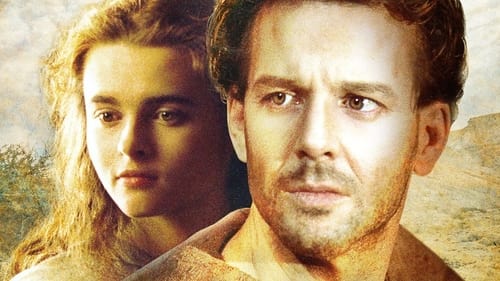
Screenplay
The life of St. Francis of Assisi (1181-1226) as related by followers who gather after his death to tell stories so that Leone can record them: a privileged and virile youth, a prisoner of war, an heir who turns away from his father and gives all to the poor, a beggar for others, and an inspiration to friends who accept the Gospels' life of poverty.

Story
The life of St. Francis of Assisi (1181-1226) as related by followers who gather after his death to tell stories so that Leone can record them: a privileged and virile youth, a prisoner of war, an heir who turns away from his father and gives all to the poor, a beggar for others, and an inspiration to friends who accept the Gospels' life of poverty.

Director
The life of St. Francis of Assisi (1181-1226) as related by followers who gather after his death to tell stories so that Leone can record them: a privileged and virile youth, a prisoner of war, an heir who turns away from his father and gives all to the poor, a beggar for others, and an inspiration to friends who accept the Gospels' life of poverty.
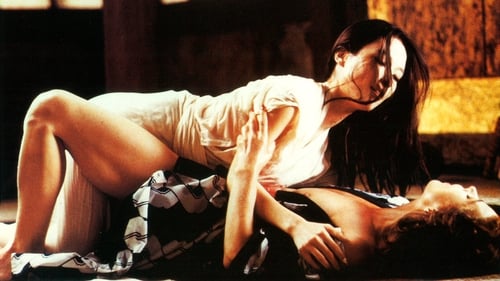
Writer
In 1938 Berlin, Gudrun Landgrebe, wife of Nazi functionary Kevin McNally, begins taking art lessons. She makes the acquaintance of another student, Japanese ambassador's daughter Mio Takaki. Soon afterwards, the two women begin a passionate lesbian affair. This leads to a chain reaction of disaster and tragedy, culminating with the inevitable intervention of the Gestapo. Despite the film's galloping sexual passions, The Berlin Affair is an exercise in aloofness, keeping the characters at arm's length-surprising, considering that the director was Liliana Cavani, auteur of the erotic classic The Night Porter (1974). The film was based on The Buddhist Cross, a novel by Junichiro Tanizaki.

Director
In 1938 Berlin, Gudrun Landgrebe, wife of Nazi functionary Kevin McNally, begins taking art lessons. She makes the acquaintance of another student, Japanese ambassador's daughter Mio Takaki. Soon afterwards, the two women begin a passionate lesbian affair. This leads to a chain reaction of disaster and tragedy, culminating with the inevitable intervention of the Gestapo. Despite the film's galloping sexual passions, The Berlin Affair is an exercise in aloofness, keeping the characters at arm's length-surprising, considering that the director was Liliana Cavani, auteur of the erotic classic The Night Porter (1974). The film was based on The Buddhist Cross, a novel by Junichiro Tanizaki.

Screenplay
Tom Berenger stars in this Italian film featuring legendary Italian star Marcello Mastroianni. Berenger is Matthew, an American engineer who falls in love with Nina (Eleanora Giorgi), a woman who holds many disturbing secrets.

Director
Tom Berenger stars in this Italian film featuring legendary Italian star Marcello Mastroianni. Berenger is Matthew, an American engineer who falls in love with Nina (Eleanora Giorgi), a woman who holds many disturbing secrets.
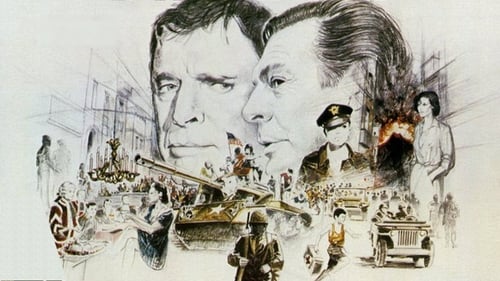
Screenplay
After the Allies liberate Naples in 1943, life for the locals is not much easier, especially for women. Many sacrifice their dignity and morale to survive.

Director
After the Allies liberate Naples in 1943, life for the locals is not much easier, especially for women. Many sacrifice their dignity and morale to survive.
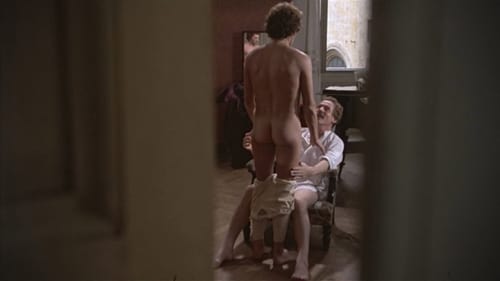
Screenplay
The life and ideas of the German philosopher Friedrich Nietzsche. A love triangle unfolds as Nietzsche and his best friend decides to live with a Jewish woman. According to Nietzsche's philosophy, that is beyond all morality. Depicting Nietzsche's opium addiction and madness meritorious.

Director
The life and ideas of the German philosopher Friedrich Nietzsche. A love triangle unfolds as Nietzsche and his best friend decides to live with a Jewish woman. According to Nietzsche's philosophy, that is beyond all morality. Depicting Nietzsche's opium addiction and madness meritorious.
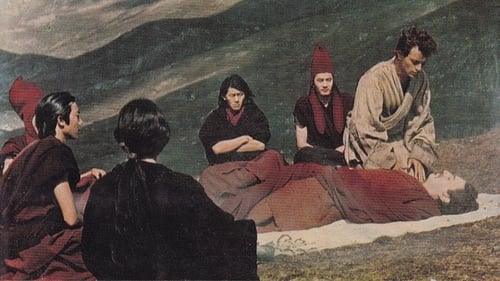
Screenplay
A story inspired by a classic text of Tibetan literature, Milarepa moves back and forth in time between the story of the title character, a mystic of the eleventh century and a young westerner whose travails are not very different, both being torn between the search for knowledge and a quest for power.

Director
A story inspired by a classic text of Tibetan literature, Milarepa moves back and forth in time between the story of the title character, a mystic of the eleventh century and a young westerner whose travails are not very different, both being torn between the search for knowledge and a quest for power.

A filmed record of a bizarre garden party organized to pay a fine incurred by singer Ulla for "liberating a chandelier from Harrods."
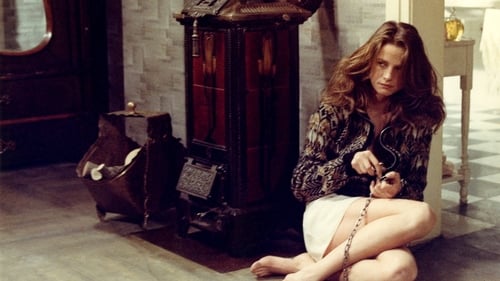
Screenplay
'57年のウィーン、冬。身元を隠し、ホテルの夜番のフロント係として働く元SSのマックスの目前に、かつて弄んだユダヤ少女ルチアが今や高名な指揮者の妻となって現われる…。

Director
'57年のウィーン、冬。身元を隠し、ホテルの夜番のフロント係として働く元SSのマックスの目前に、かつて弄んだユダヤ少女ルチアが今や高名な指揮者の妻となって現われる…。

Writer
A forty year old woman, who has been in an asylum, goes to live with her brother's family. She proves incapable of adapting herself to family life, takes refuge in the country alone with her memories, and is later returned to the asylum.

Director
A forty year old woman, who has been in an asylum, goes to live with her brother's family. She proves incapable of adapting herself to family life, takes refuge in the country alone with her memories, and is later returned to the asylum.
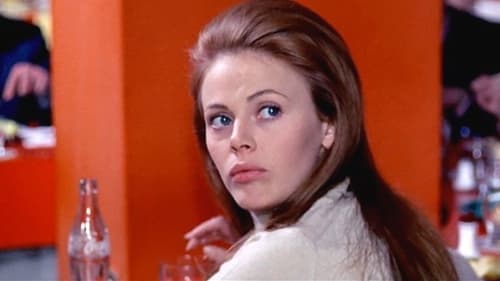
Writer
On the streets of a damp metropolis lie the corpses of hundreds and hundreds of boys and girls. No one can give them a resting place because of a law enacted by a repressive State. But the young Antigone, with the help of a foreigner, Tiresias, violates this rule in the name of pietas, undermining the established order.

Director
On the streets of a damp metropolis lie the corpses of hundreds and hundreds of boys and girls. No one can give them a resting place because of a law enacted by a repressive State. But the young Antigone, with the help of a foreigner, Tiresias, violates this rule in the name of pietas, undermining the established order.

Writer
With a screenplay by Liliana Cavani, this film is based on a true story, events that happened in Alabama in 1965. A daughter of Italian immigrants, Liuzzo participated in the march led by Martin Luther King. As she returned home, she was accosted and murdered by four members of the Ku Klux Klan.
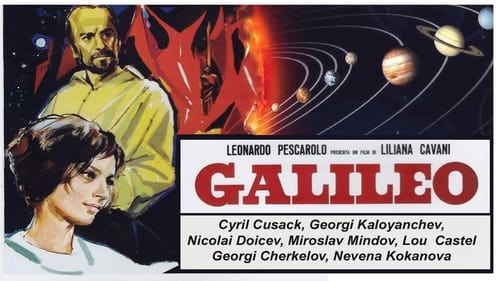
Screenplay
A humble scientist from Padua proves that the Earth revolves and that it is not the center of the universe.

Story
A humble scientist from Padua proves that the Earth revolves and that it is not the center of the universe.

Director
A humble scientist from Padua proves that the Earth revolves and that it is not the center of the universe.

Screenplay
Cavani made her first full-length feature film in 1966 with Francis of Assisi (Francesco d'Assisi). Made for television and aired in two parts, it was deeply influenced by the style of Rossellini and the atmosphere typical of the films of Pasolini. Made in a period of political unrest, it was to become a kind of manifesto of dissenting Catholicism. Starring Lou Castel, it portrays Francis of Assisi as a slightly depressed protestor and an avid, albeit mad, supporter of armed brotherhood. The ideal defender of the 1968 student movement. The film was a great success, but also triggered many negative reactions. It was called "heretical, blasphemous and offensive for the faith of the Italian people". It was the first of many polemical reactions to Cavani's work.

Director
Cavani made her first full-length feature film in 1966 with Francis of Assisi (Francesco d'Assisi). Made for television and aired in two parts, it was deeply influenced by the style of Rossellini and the atmosphere typical of the films of Pasolini. Made in a period of political unrest, it was to become a kind of manifesto of dissenting Catholicism. Starring Lou Castel, it portrays Francis of Assisi as a slightly depressed protestor and an avid, albeit mad, supporter of armed brotherhood. The ideal defender of the 1968 student movement. The film was a great success, but also triggered many negative reactions. It was called "heretical, blasphemous and offensive for the faith of the Italian people". It was the first of many polemical reactions to Cavani's work.

Director
A documentary film: two generations reflect on World War II, twenty years after peace was declared in Europe.

Director
Documentary composed of interviews with female partisans who survived the German invasion of Italy in World War II.

Director
A documentary about the life and spirituality of Charles de Foucauld, a French priest who lived in the Sahara and was assassinated in 1916.

Director
A documentary about the trial of Philippe Pétain.

Director
A documentary about the urban housing crisis in three Italian cities, Turin, Naples, and Rome, during the 1960s.

Director
A documentary about Josef Stalin.

Writer
An early short film by Liliana Cavani that confronts the theme of discrimination.

Director
An early short film by Liliana Cavani that confronts the theme of discrimination.

Director
A documentary about the Third Reich.

Director
A documentary short.

Director
A documentary short.

Director
A documentary short.

Director
A documentary short.

Writer
An early short film by Liliana Cavani that confronts the theme of discrimination.

Director
An early short film by Liliana Cavani that confronts the theme of discrimination.




















